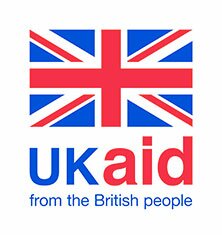A “shock-responsive system” is one that is able to scale up to address needs that arise due to a shock (whether a pandemic, natural hazard or conflict), whilst maintaining routine service delivery and avoiding indirect effects from service disruption.
Maintains has just published a Working Paper setting out a conceptual model of a shock-responsive health system. This conceptual model has been developed to ensure that the programme’s research agenda within and across countries can systematically generate insights that can inform policy reform in Maintains countries, as well as influence global thinking and practice.
The paper draws on the latest conceptual thinking about health systems, in particular, the fact that health systems are complex adaptive social systems whose outcomes are heavily dependent upon “intangible software” considerations such as trust and values. It also draws on the most recent global evidence on how health systems have responded to shocks, particularly the Ebola outbreak in West Africa.
The paper presents the model and the evidence and literature base that were used to develop it. This may be of immediate use for practitioners and researchers who are currently engaged on shocks to health systems, particularly COVID-19. But the model itself will be iterated as lessons from the research are fed back, and we would like your input.
How you can help:
In the short term, we welcome any feedback on the model, in particular any omissions that should be included. In the longer term, we would like to engage with researchers and practitioners – either in Maintains countries or other contexts who are also working on these issues, so that we cross-fertilise emergent thinking and learn from a broader set of experience to inform synthesis learning.
Please do if you would be interested in collaboration.
The Maintains programme itself delivers operational research across six countries (Bangladesh, Ethiopia, Kenya, Pakistan, Sierra Leone and Uganda) on what it takes for national public service delivery systems to be more responsive to shocks, whether natural hazards, epidemics, or population displacement. As part of this work, the research will explore the components of this model to identify synthesis learning and best practice as to how different components should be supported to ensure shock-responsiveness. Maintains is also using the model as the basis for its extensive work analysing and supporting the COVID-19 response in Maintains countries.
You can access the Working Paper here.
Please send any comments, or requests for collaboration in testing or developing the model, to
We are planning a webinar on this conceptual model, to enable further feedback, and to explore ways to develop and refine the model, including dedicated work on specific components. Details will be shared soon.



